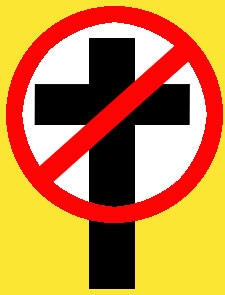 There is now one person who says they believe in "no religion' at all for every Anglican in Australia, but this is no cause for alarm says cultural commentator Dr Greg Clarke.
There is now one person who says they believe in "no religion' at all for every Anglican in Australia, but this is no cause for alarm says cultural commentator Dr Greg Clarke.
Analysts have been digesting 2006 data for a week now which has revealed that 3,706,557 Australians or 19 per cent of the population now claim to have "no religion' " roughly the same percentage claiming to belong to the Anglican faith.
But Dr Clarke says the results point to Australians becoming clearer about what Christianity teaches, and what they believe.
"I’m pleased to hear this figure but not because I’d be pleased to have fewer people in Anglican Churches!" he says.
"I think it indicates that people who were nominally Anglican no longer feel pressure to label themselves that way. It means that those in church are more likely to be there because they believe the message of the Gospel than because they feel it's a socially acceptable thing to have a denomination."
The 2006 Census reports that though the number of people claiming to be Christian has dropped from 71 per cent to 64 per cent, it is still the dominant national belief.
However Dr Clarke says Sydney Anglicans and others need to sit up and take notice of the 3 per cent increase in "no religion' respondents.
"This is certainly important information for Christians because it shows what a bad reputation religion has in the eyes of one in five Australians," he says.
"Some of that will be deserved but some of it will be because we haven’t communicated well enough the good religion can bring into people’s lives.”
Atheism linked to affluence?
The average Australian is now earning $466 before tax each week, up from $375 in 2001, and the majority are either bachelors or spinsters with more than 33 per cent of the population having never married.
Dr Clarke says the increase of no religion in the face of increasing affluence is no real surprise.
"It's no surprise to anyone that as countries get wealthier and more comfortable a belief in God dissipates. But we have to be clear that this has nothing to do with the fact that God exists. It just says a lot about how humans behave when we feel like we can look after ourselves."
He believes the more surprising information relates to the sort of spirituality Australians are choosing.
"What’s really interesting is not the ‘no religion’ factor but the kind of beliefs people have," he points out.
"There are for example more Buddhists than Baptists. So you can’t think of Australia as just a European settlement anymore."
Dr Clarke also questions the degree to which the census penetrated remote Australian communities.
"It’s also stunning to note how few people are connected with Aboriginal spiritual beliefs. According to this data only 213 people line up with an Aboriginal spirituality. Aboriginal art and culture are held to be incredibly significant by the Australian intelligentsia but its spirituality is not significant statistically."



















